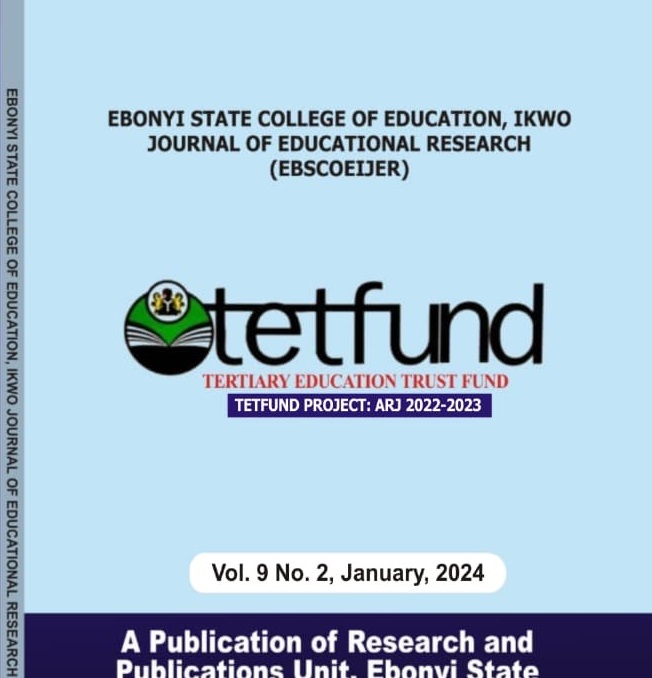THE ROLE OF SECURITY AGENCIES IN A FREE, FAIR AND CREDIBLE ELECTION (A CASE STUDY OF 2023 PRESIDENTIAL ELECTION)
Abstract
This study examines the role of security agencies in a free, fair and credible election. Faced with the problem of the police having not only failed to properly carry out their election responsibilities but have themselves ended up being a central element of the security challenges connected with the conduct of elections in Nigeria, the study was guided by the following objectives; To study how the security agencies curb electoral violence before, during and after elections. To understand the impact of electoral violence and insecurity on the electoral participation in Nigeria. To highlight the challenges faced by the security agencies in curbing electoral violence in Nigeria. The study employed descriptive and explanatory design, questionnaires in addition to library research were applied in order to collect data. Primary and secondary data sources were used and data was analyzed using statistical package which was presented in frequency tables and percentage. The respondents under the study were 30 security agents deployed during the 2023 presidential election. The study findings revealed that there is a significant impact [security agencies] has on [free, fair and credible elections]. Linear regression significant at 0.05 level (2-tailed), 0.00 indicates the significance of interaction between two variables an indication that the significant is under the range of 0.0 and 0.05.
Using the above findings, it implied that there is a strong relationship between [security agencies] and [free, fair and credible elections]. Key recommendations from the study are; Security agencies should maintain a high level of professionalism and impartiality in their operations during elections. They should uphold the rule of law and demonstrate fairness and neutrality in their actions. This includes avoiding any form of political bias, refraining from undue influence or interference, and treating all political parties, candidates, and citizens equally. Building and promoting a culture of professionalism within security agencies will enhance public trust and confidence in their role during elections. Effective coordination among different security agencies is crucial for addressing electoral violence comprehensively. Security agencies should establish mechanisms for sharing intelligence, coordinating operations, and exchanging information in real-time. This collaboration should extend to engagement with election management bodies, civil society organizations, and relevant stakeholders. Regular joint training exercises and joint operation planning will enhance synergy, streamline efforts, and improve overall security preparedness. Security agencies can play a vital role in promoting voter education and engagement initiatives, by partnering with election management bodies, civil society organizations, and community leaders, they can as well help educate voters on their rights and responsibilities, the electoral process, and the importance of peaceful participation. These efforts should specifically target marginalized groups, emphasizing inclusivity and equal participation. Increasing voter education and engagement will contribute to reducing tensions, preventing misinformation, and fostering a peaceful electoral environment.

